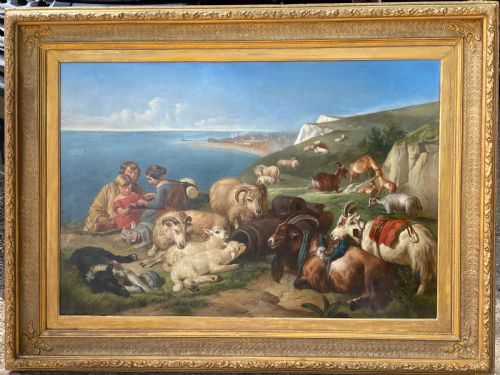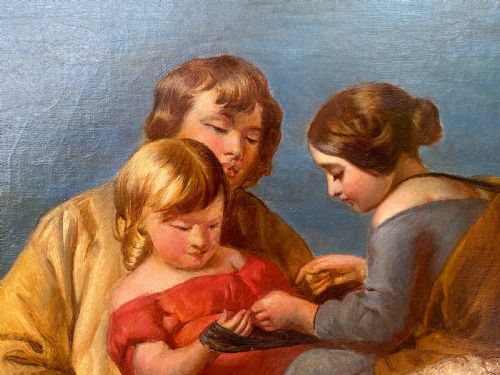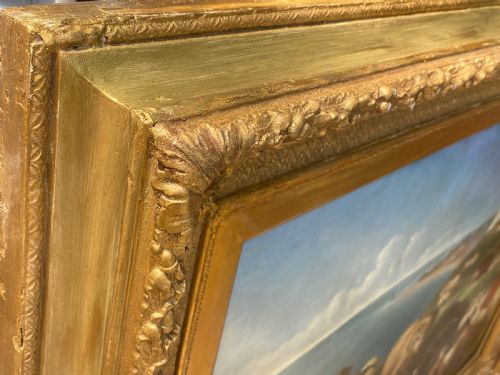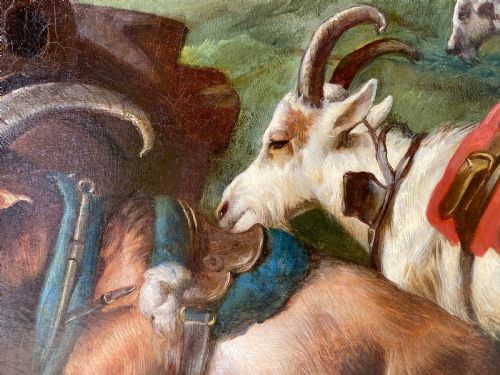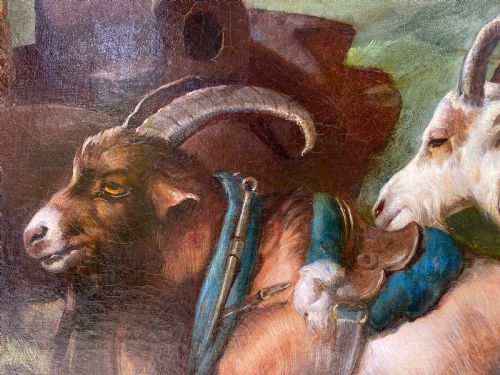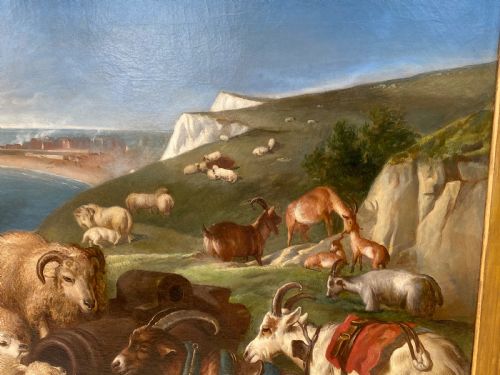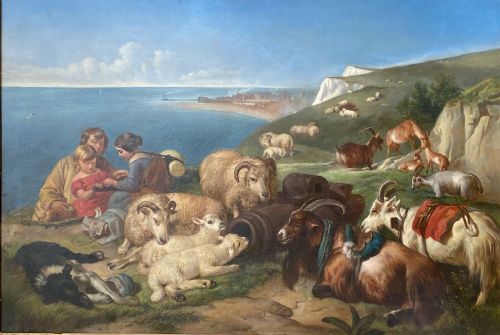Pair of Regency Giltwood Wall Sconces, ca 1820
SOLD. Oil on Canvas after Sir Edward Landseer RA (1802-1873) “Time of Peace”
A very large and beautiful painting depicting the work of Sir Edwin Landseer.
Entitled “Time of Peace.”, this 19th Century Oil on canvas would have been copied from the original which was destroyed in 1928 when the Thames flooded the National Gallery, Millbank, where the picture was on display.
We found this painting in a poor state and had it professionally cleaned and relined. The beautifully gilded wood and gesso frame had been over painted and that was also restored.
The result is extraordinary and truly reflects the mastery of Sir Edwin Landseer.
Framed the painting measures W 143cm X H107cm. The canvas measures W 112cm X H76cm
Landseer (1802 – 1873) was a notable figure in 19th-century British art, and his works can be found in Tate Britain, the Victoria and Albert Museum, Kenwood House and the Wallace Collection in London. He also collaborated with fellow painter Frederick Richard Lee.
Landseer’s popularity in Victorian Britain was considerable and his reputation as an animal painter was unrivalled. Much of his fame – and his income – was generated by the publication of engravings of his work, many of them by his brother Thomas.
His appeal crossed class boundaries: reproductions of his works were common in middle-class homes, while he was also popular with the aristocracy. Queen Victoria commissioned numerous pictures from the artist. Initially asked to paint various royal pets, he then moved on to portraits of ghillies and gamekeepers. Then, in the year before her marriage, the queen commissioned a portrait of herself, as a present for Prince Albert.
He taught both Victoria and Albert to etch, and made portraits of Victoria’s children as babies, usually in the company of a dog. .He also made two portraits of Victoria and Albert dressed for costume balls, at which he was a guest himself. One of his last paintings was a life-size equestrian portrait of the Queen, shown at the Royal Academy in 1873, made from earlier sketches.

